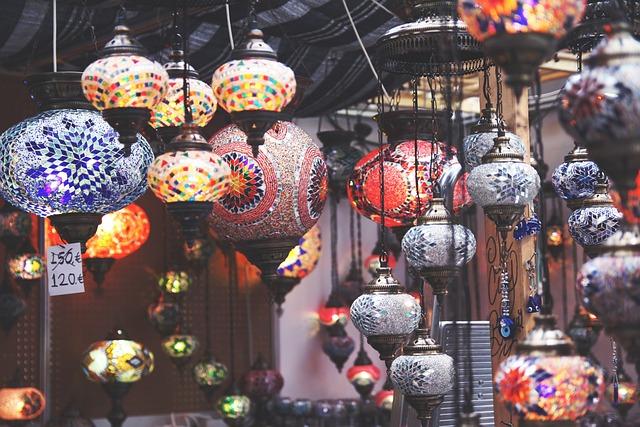Strengthening Sino-African Partnerships: Ambassador Hu Changchun Meets with AU Commission Chairperson Mahmoud Ali Youssouf
In a landmark diplomatic engagement aimed at deepening China-Africa relations, Ambassador Hu Changchun, Head of the Chinese Mission to the African Union (AU), recently held discussions with H.E. Mahmoud Ali Youssouf, the newly appointed Chairperson of the African Union Commission (AUC). The meeting took place in Addis Ababa and signified a renewed commitment to advancing cooperation across multiple sectors including economic development, security collaboration, and sustainable growth initiatives. This dialogue reflects China’s strategic intent to reinforce its partnership with Africa amid shifting global geopolitical and economic landscapes.
Exploring New Horizons for China-Africa Cooperation
The conversation between Ambassador Hu and Chairperson Youssouf centered on expanding bilateral ties through multifaceted collaboration. Both leaders expressed enthusiasm about leveraging their countries’ complementary strengths to foster inclusive growth across Africa. Key areas highlighted during their exchange included:
- Economic Integration: Enhancing trade flows and investment channels that stimulate industrialization and innovation within African economies.
- Cultural Diplomacy: Initiatives designed to celebrate Africa’s diverse heritage while promoting intercultural understanding between Chinese and African peoples.
- Technological Cooperation: Joint efforts aimed at accelerating digital transformation through knowledge sharing in ICT infrastructure development.
A significant portion of their discussion focused on aligning these objectives with China’s Belt and Road Initiative (BRI), which continues to serve as a catalyst for infrastructure connectivity projects throughout Africa. A collaborative framework was proposed targeting priority sectors such as health research partnerships, educational scholarships for African students in China, as well as renewable energy ventures emphasizing solar power expansion—an area where Africa holds immense untapped potential given its abundant sunlight resources.
| Sectors of Focus | Collaborative Measures Proposed |
|---|---|
| Healthcare Innovation | Pooled investments in pharmaceutical R&D and epidemic preparedness programs. |
| Education & Training | Bilateral scholarship schemes facilitating academic exchanges at leading Chinese universities. |
| Sustainable Energy Solutions | Cofunded projects deploying solar farms and wind turbines across key regions. |
The leaders conveyed optimism that these joint endeavors would not only accelerate socio-economic progress but also strengthen mutual trust essential for long-term partnership success.
Main Themes from the Dialogue: Development Synergies & Security Collaboration
The meeting also underscored critical themes related to continental development goals alongside regional security challenges confronting Africa today. Both parties acknowledged that addressing issues such as terrorism threats requires coordinated strategies supported by shared intelligence frameworks. Furthermore, they agreed on prioritizing infrastructure investments aligned with Agenda 2063—the AU’s blueprint for inclusive growth over the next four decades—which resonates closely with China’s vision of sustainable international cooperation.
- Economic Growth Acceleration: Encouraging private sector participation alongside state-led initiatives targeting agriculture modernization and tech startups across member states.
>
- A Unified Security Approach: Establishing joint military exercises coupled with enhanced information sharing mechanisms aimed at stabilizing volatile regions within Africa’s Sahel zone among others.
- Cultural Engagements: Expanding youth exchange programs along with academic collaborations designed to nurture future leaders familiarized with both cultures.
- Infrastructure Expansion: Coordinated efforts toward developing transport corridors integrated into broader BRI networks while promoting green energy alternatives.
Priority Area Initiative Highlights Economic Development Targeted investments focusing on agritech innovation hubs. Security Cooperation Regular joint drills plus establishment of counterterrorism task forces. Cultural Exchange Programs Scholarship expansions plus cultural festivals celebrating shared heritage. Infrastructure Projects Renewable energy installations combined with upgraded logistics networks. Towards Deeper Integration: Strategic Recommendations for Future Collaboration
The path forward calls for structured mechanisms enhancing coordination between China and AU institutions. To maximize impact from this growing alliance, several strategic recommendations were outlined during discussions including:
- Create Specialized Joint Task Forces : Dedicated teams focusing on high-impact regional projects encompassing technology transfer initiatives tailored specifically towards local needs. li >< li >Sustain Regular High-Level Engagements : Institutionalize biannual summits bringing together policymakers from both sides fostering transparency, and alignment around evolving priorities. li >< li >Pursue Capacity Building Programs : Expand training modules empowering officials within governance structures especially public administration reforms. li >< li >Cultivate People-to-People Connections : em > Broaden cultural immersion opportunities via student exchanges, cultural exhibitions,&&&&&&amp;amp;amp;amp;amp;amp;amp;; community outreach activities strengthening grassroots diplomacy.& nbsp ;</l i>
</u l><p>Additionally,& nbsp;a centralized platform enabling resource pooling was proposed -& nbsp;a mechanism allowing transparent allocation where:</ p>
Resource Category China’s Role African Union’s Contribution Financial Support Capital injections into large-scale infrastructure developments Oversight ensuring accountability & project sustainability Technical Expertise Provision of advanced technologies & specialized training sessions Adaptation & implementation tailored towards local contexts Human Capital Exchange
< td style= " vertical-align : top ; ">Deployment of skilled professionals
< td style= " vertical-align : top ; ">Capacity enhancement through knowledge transfer programsA Forward-Looking Partnership Shaping Global Diplomacy Dynamics
This recent engagement between Ambassador Hu Changchun and AUC Chairperson Mahmoud Ali Youssouf represents more than just diplomatic protocol—it signals an evolving chapter in Sino-African relations characterized by pragmatic cooperation rooted in mutual benefit. As both parties reaffirmed their dedication toward collaborative progress spanning trade facilitation,infrastructure modernization , regional peacekeeping , ,and people-centered cultural exchanges , this alliance is poised to influence not only continental prosperity but also broader international relations frameworks . With ongoing dialogues set against a backdrop of global uncertainty , such partnerships offer promising avenues toward resilient , inclusive development trajectories . p >
- Create Specialized Joint Task Forces : Dedicated teams focusing on high-impact regional projects encompassing technology transfer initiatives tailored specifically towards local needs. li >< li >Sustain Regular High-Level Engagements : Institutionalize biannual summits bringing together policymakers from both sides fostering transparency, and alignment around evolving priorities. li >< li >Pursue Capacity Building Programs : Expand training modules empowering officials within governance structures especially public administration reforms. li >< li >Cultivate People-to-People Connections : em > Broaden cultural immersion opportunities via student exchanges, cultural exhibitions,&&&&&&amp;amp;amp;amp;amp;amp;amp;; community outreach activities strengthening grassroots diplomacy.& nbsp ;</l i>
